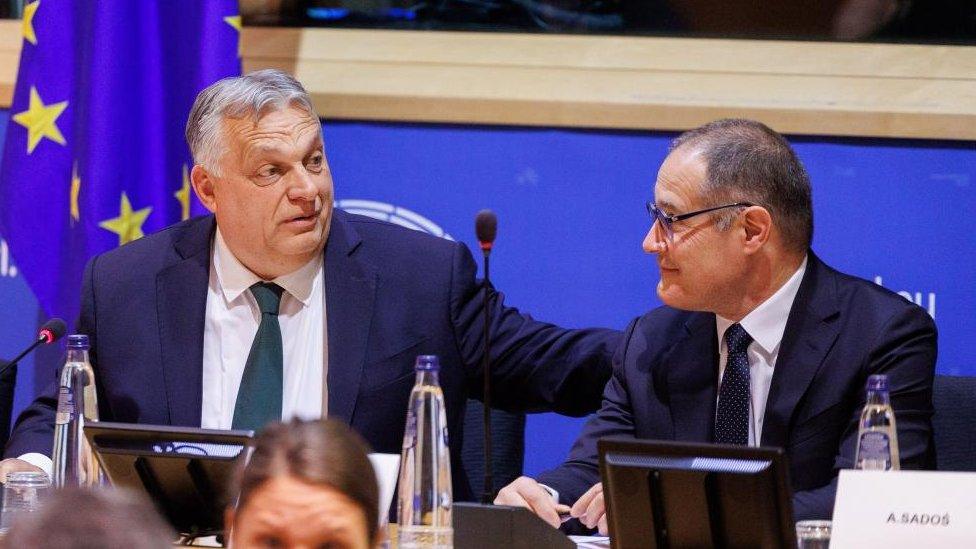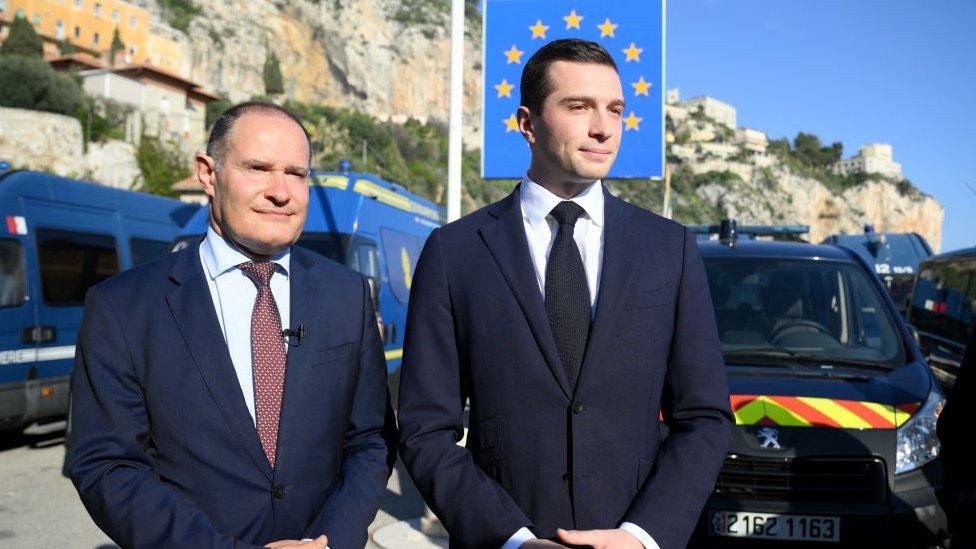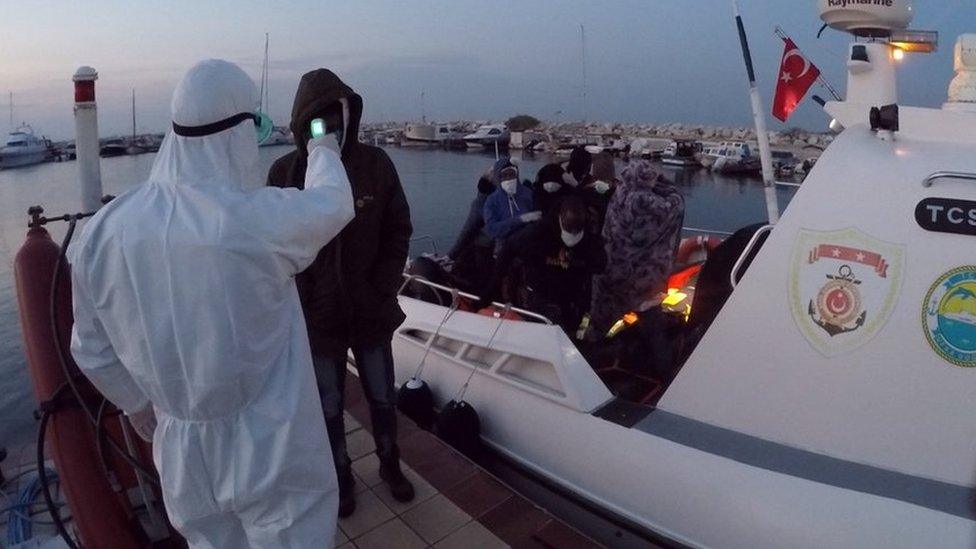European elections 2024: France's far right shows off star turn Fabrice Leggeri
- Published

Fabrice Leggeri was head of the EU's border agency until 2022 and his views on migration chime with Hungarian PM Viktor Orban's
Ahead of next month's elections to the European Parliament, France's far-right National Rally is boasting a star new recruit.
Until two years ago, Fabrice Leggeri was executive-director of the European Union's border agency Frontex.
For the National Rally (RN), already riding high in the opinion polls, the arrival of such an important figure is a major coup.
Mr Leggeri, 56, was schooled to be part of France's administrative elite.
Before taking over at Frontex in 2015, he held posts in the interior, defence and foreign ministries.
His establishment status helps push back against a persistent criticism of the RN, that it lacks the human talent needed for effective government.
The former high-ranking EU official, who still lives in Brussels, is scathing about the European Commission and the way he claims it allowed an NGO pro-migrant agenda to undermine his task of patrolling EU borders.
He also blames President Emmanuel Macron for failing to support him, when it was clear he was falling out of favour with the Commission.
More from Hugh: Europe risks dying and faces big decisions - Macron
Founded in 2004 and based in Warsaw, the EU's Border and Coast Guard Agency is supposed to help member states enforce the zone's external frontiers. It has an annual budget of nearly €900m (£770m) and a staff set to rise to 10,000 by 2027.
But Fabrice Leggeri is not without controversy of his own. Critics say he resigned in 2022 after he was accused of colluding in "pushbacks" of migrants by Greek authorities into Turkish waters - which NGOs said were illegal.
Last week, French human rights groups filed a suit against him for complicity in crimes against humanity for his role in the "pushbacks", and for allegedly giving information to Libyan authorities that allowed them to stop boats entering European waters.
"There is a clear consistency between his thought and actions as head of Frontex and his political allegiance to the RN," said Patrick Baudouin of the League for Human Rights.
I became aware three or four years ago that taking control of our borders in Europe was impossible without getting involved in politics

Mr Leggeri told the BBC that when he was appointed he conceived his job as being to protect Europe's borders against illegal immigration by running an armed and uniformed EU border guard.
He said he was shocked when the new Swedish EU home affairs commissioner Ylva Johanssen, told him: "Migrants come for love, so your job is to welcome them, whether you like it nor not. Because Europe is an ageing continent."
The European Commission reacted against this charge when it initially appeared in a French newspaper, saying "Leggeri's statements are untrue."
Mr Leggeri was accused of having fought to prevent the appointment of human rights monitors to accompany Frontex in its operations. But he alleges they were a "Trojan horse" for pro-migrant charities.
"Basically Frontex was hijacked by NGOs, with the implicit and at times vocal support of the European Commission," he told the BBC.
The Commission said in its rebuttal of his accusations: "Frontex's mandate has two aspects: respect for frontiers, and the fundamental rights [of asylum-seekers]."

Mr Leggeri's candidacy is a coup for National Rally president Jordan Bardella ahead of next month's European Parliament elections
Mr Leggeri has accused President Macron of blowing hot and cold on the urgency of securing borders against illegal immigration.
"When he came to power seven years ago, he was all for a sovereign Europe protecting its citizens, and all for a proper EU border guard. But when it came down to it, he had no real will.
"That is Macron all over. He says he will do 'black.' But then in the meantime, he says we must also do 'white'. It's A plus B. Then it's in the middle. Then it's nothing."
The former Frontex chief describes his alignment with the RN as a "process".
"I became aware three or four years ago that taking control of our borders in Europe was impossible without getting involved in politics. I appreciated the RN because it had the courage to put a name to things.
"I do not consider us to be far-right. That is the term of the mainstream media, which reflects the thought processes of the French establishment in the Paris bubble, or the Brussels bubble."
Related topics
- Published12 December 2020
